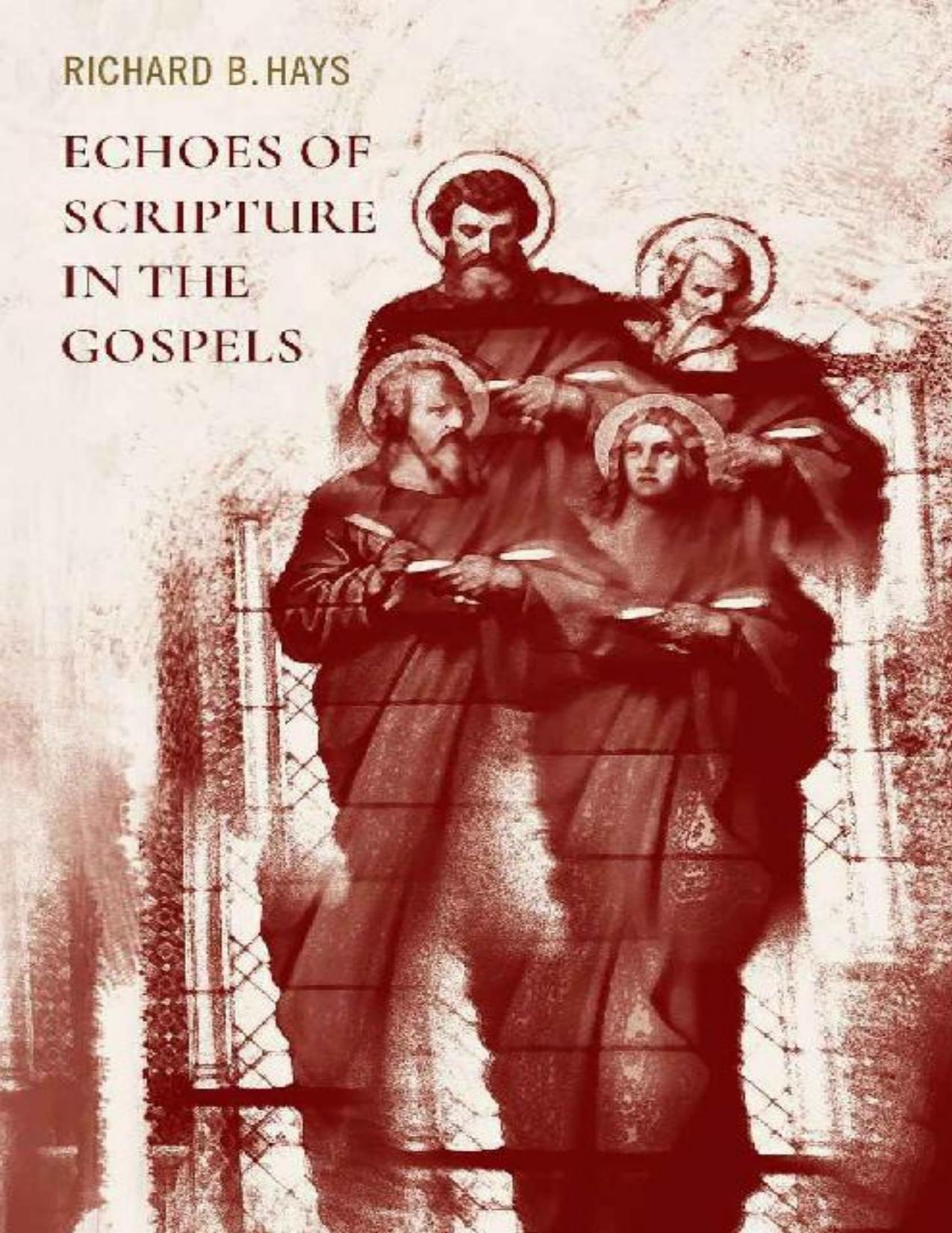Echoes of Scripture in the Gospels by Richard B. Hays

Author:Richard B. Hays [Hays, Richard B.]
Language: eng
Format: epub, pdf
Tags: REL067000 Religion / Christian Theology / General, REL006000 Religion / Biblical Studies / General, REL006710 Religion / Biblical Studies / Jesus, The Gospels & Acts
Publisher: Baylor University Press
Published: 2016-07-05T16:00:00+00:00
Jesus as the Son of God. Luke makes it clear from the opening scenes of his narrative that his central character Jesus has a divine origin and that he is no ordinary human figure; the angel Gabriel announces to Mary that her child is to be “the Son of the Most High” (Luke 1:32). The careful reader will note the contrast to John, who will be called “the prophet of the Most High” (1:76). “Son of the Most High” is not merely an honorific royal title, for Luke carefully informs us that Jesus is to be born to a virgin mother (1:27, 34) and that his conception will occur through the agency of the Holy Spirit, who will “overshadow” Mary. Gabriel’s pronouncement then spells out the implications of this miraculous birth: “Therefore the child to be born will also be called holy, God’s Son” (1:35).107 After the trumpet-flourish of this portentous introduction, it is hard to see how any reader could suppose that Luke has a “low” Christology or that the Jesus who will subsequently appear in the story could be rightly interpreted as only a prophet.108 Jesus enters history through supernatural means, and he is therefore God’s Son in some ontological fashion.
The identification of Jesus as Son of God is of course reinforced in Luke’s accounts of the baptism of Jesus and the transfiguration. At both of these pivotal dramatic events a voice from heaven speaks, identifying Jesus as “my Son, the beloved” (Luke 3:22) and “my Son, the chosen one” (9:35).109 Each of these passages in turn evokes a chorus of scriptural echoes. In the case of “my Son, the beloved,” the dominant voice in the chorus is the allusion to Isaac in Genesis 22, though when the heavenly voice continues the acclamation by saying “in you I am well pleased,” there is an additional echo of God’s address to the Servant in Isaiah 42:1: “Here is my servant, whom I uphold, my chosen, in whom my soul delights.” This second echo is amplified into a more explicit allusion in the transfiguration passage with its reference to the Son as the “chosen one” (ὁ ἐκλελεγμένος). In the LXX, Isaiah 42:1 is explicitly interpreted as a prophecy concerning Jacob, understood as a corporate designation for “Israel, my chosen one” (ὁ ἐκλεκτός μου). And in both of these passages the royal messianic Psalm 2:7 may reverberate more distantly in the background. While the Old Testament allusions in the baptism and transfiguration texts would seem to identify Jesus with Israel, God’s covenant partner rather than God himself, we must recall that Luke regularly weaves together different strands of material and that no one image identifying Jesus should be understood as exclusive of others. Indeed, when these texts are read in narrative sequence with Luke 1:26-38, the effect is to suggest that Jesus’ status as Son entails some sort of identity both with God and with Israel/humanity.110
The theme of Jesus’ sonship surfaces again in the striking prayer of Luke 10:21-22, the so-called
Download
Echoes of Scripture in the Gospels by Richard B. Hays.pdf
This site does not store any files on its server. We only index and link to content provided by other sites. Please contact the content providers to delete copyright contents if any and email us, we'll remove relevant links or contents immediately.
| Guides | New Testament |
| Old Testament |
The Five People You Meet in Heaven by Mitch Albom(3569)
The Secret Power of Speaking God's Word by Joyce Meyer(3223)
Real Sex by Lauren F. Winner(3024)
Name Book, The: Over 10,000 Names--Their Meanings, Origins, and Spiritual Significance by Astoria Dorothy(2987)
The Holy Spirit by Billy Graham(2953)
0041152001443424520 .pdf by Unknown(2846)
How The Mind Works by Steven Pinker(2816)
ESV Study Bible by Crossway(2778)
Ancient Worlds by Michael Scott(2690)
Churchill by Paul Johnson(2587)
The Meaning of the Library by unknow(2573)
The ESV Study Bible by Crossway Bibles(2553)
The Gnostic Gospels by Pagels Elaine(2532)
MOSES THE EGYPTIAN by Jan Assmann(2417)
Jesus by Paul Johnson(2363)
City of Stairs by Robert Jackson Bennett(2355)
The Complete Dead Sea Scrolls in English (7th Edition) (Penguin Classics) by Geza Vermes(2284)
The Nativity by Geza Vermes(2233)
Ancient Near Eastern Thought and the Old Testament by John H. Walton(2226)
